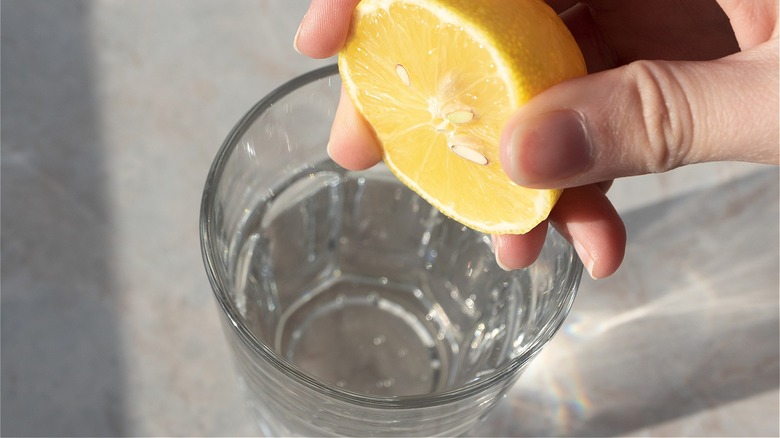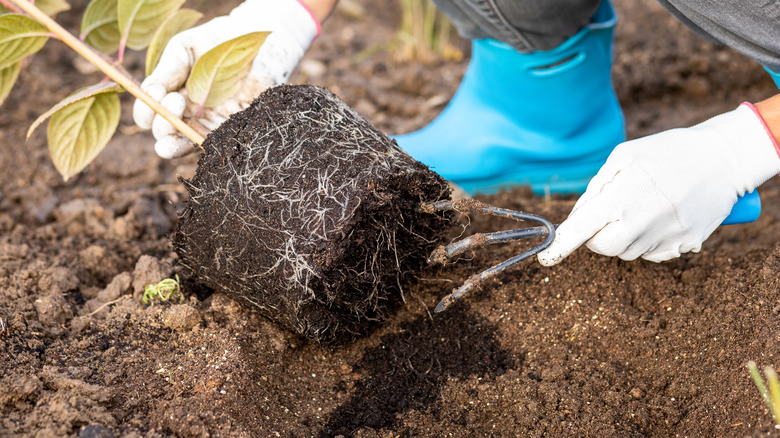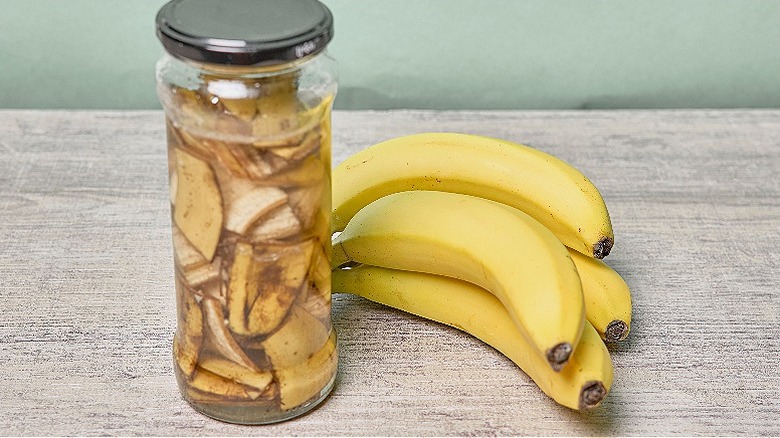The Lemon Water Gardening Hack You Want To Stay Away From
It might seem like all a garden needs is dirt, sunlight, and water, but we add many more amendments to that mixture to make our backyards as bountiful as possible. And a lot of times, those amendments are food-based. After all, what is compost but kitchen scraps mixed in with brown matter? Not to mention, coffee grounds are used to turn hydrangeas blue, eggshells are turned into fertilizer, and banana water is employed to help a garden grow big and strong. So it only makes sense for some gardeners to wonder if they can do anything with their spare lemons, like turn them into lemon water. However, you don't want to go quite that far.
Lemons are filled with citric acid, which can burn your plants at best, and kill your garden at worst. It's much too acidic and tart to do any good. While some sources might claim lemon water can balance the pH of the soil or help correct yellow leaves, there are better ways to do so.
Why you shouldn't use lemon water in your garden
Pouring lemon juice on a plant can kill it thanks to the amount of citric acid in the fruit, but even diluted lemon water can have severe repercussions. For example, watering your garden or landscaping with lemon water can have similar effects to acid rain. The polluted gases created by acid rain make the soil acidic, which can damage root systems and burn leaves and bark. The same thing happens with an unassuming bucket of lemon water.
In addition to damaging the plant itself, it can also ruin the soil it's planted in. Lemon is antimicrobial in nature, and it can wipe out beneficial bacteria and fungi in the dirt; these soil allies not only help plants grow but also produce antibiotics that can protect the garden from common plant diseases. They're not something you want to cleanse from the yard. Because of this, it's best to avoid watering your plants with any amount of lemon water.
What to use instead
If you want to infuse your water with a nutrient-boosting fruit, put the lemons down and instead pick up a couple of bananas. If you have banana peels left over after breakfast or a snack, store them in a bowl until you have enough to make some liquid fertilizer for your garden. All you need to do is cut the peels down into smaller pieces and then cover them with water in a bucket. Allow them to steep for a couple of days, occasionally stirring the water so the ingredients begin to mix. Strain or scoop out the peels, and use the water to water your garden beds or prized flowers.
Banana water acts as fertilizer since banana peels are packed with plant-healthy nutrients like magnesium, phosphorus, and calcium. These are essential to help your plants grow strong and beautiful, so a boost in these nutrients is always welcome.


